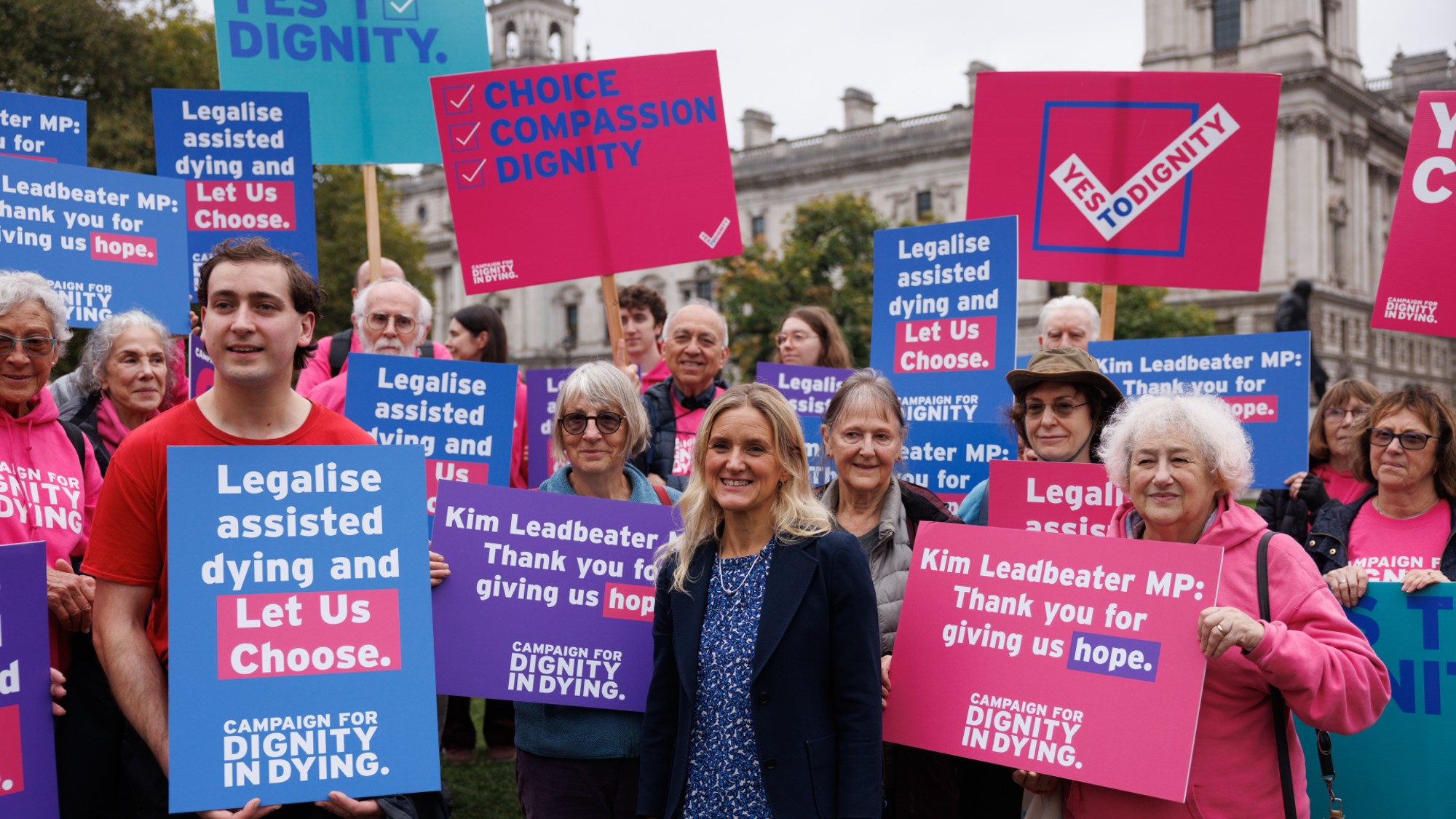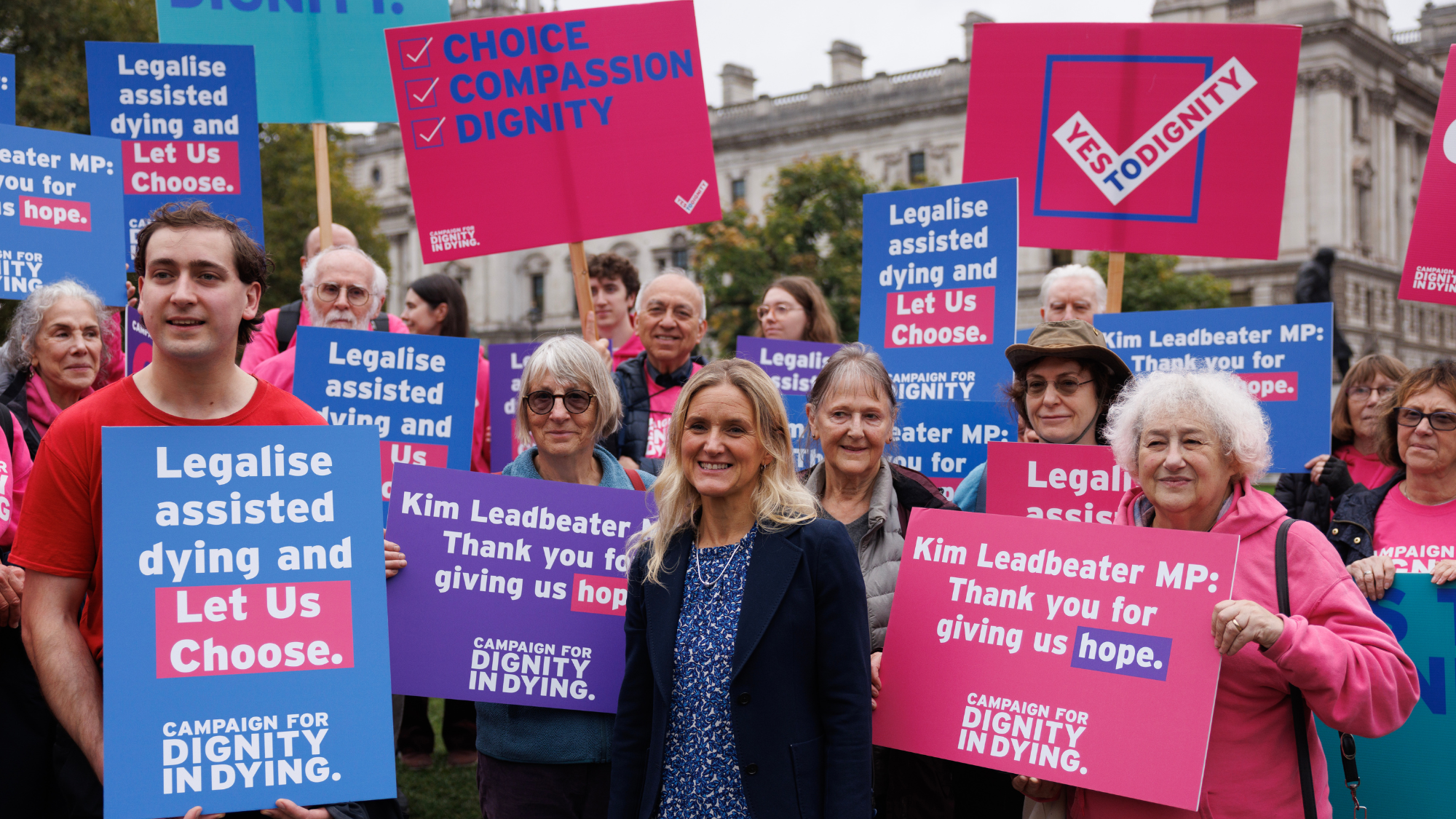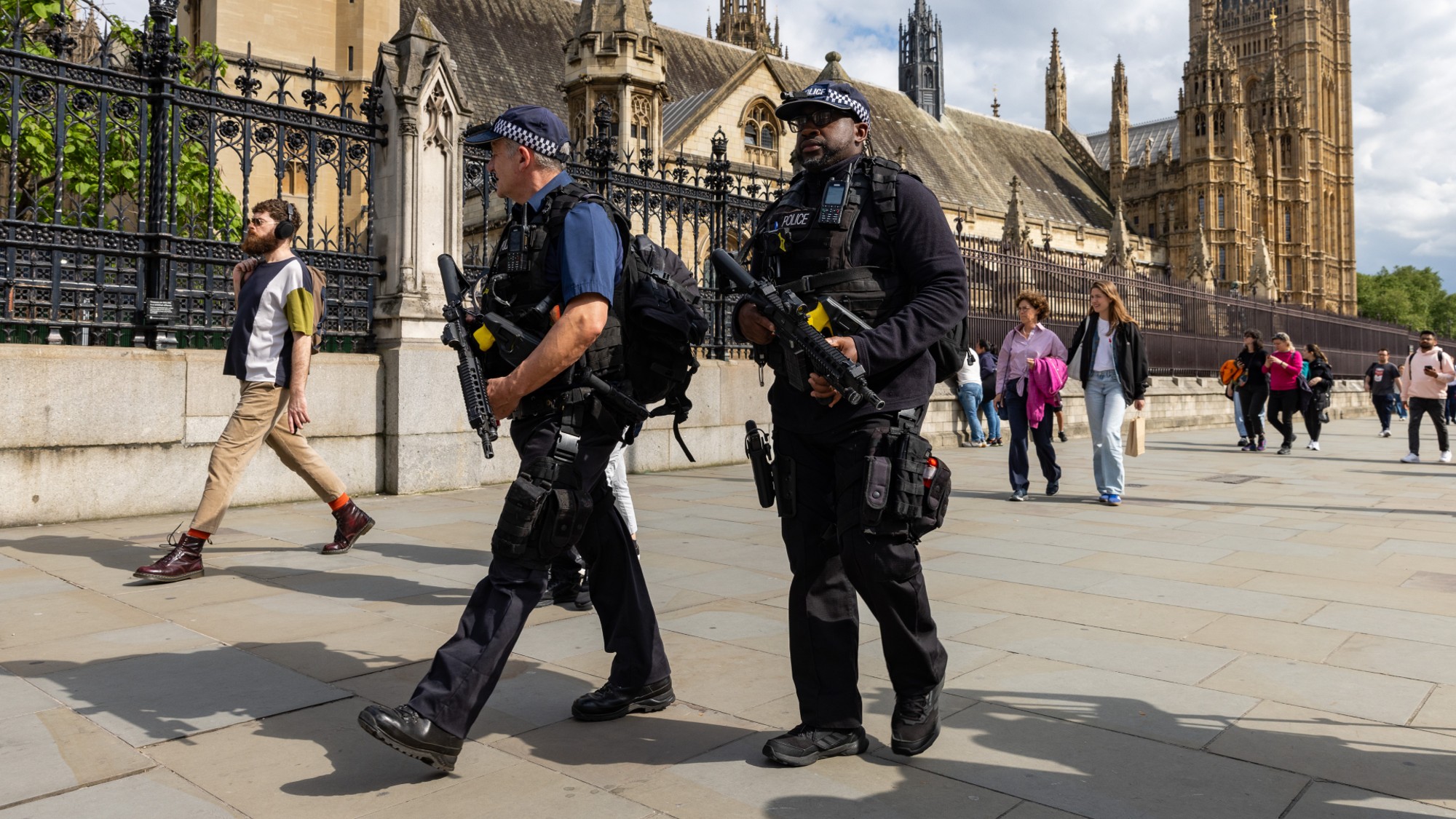How would assisted dying work in the UK?
Proposed law would apply to patients in England and Wales with less than six months to live – but medics may be able to opt out

A free daily email with the biggest news stories of the day – and the best features from TheWeek.com
You are now subscribed
Your newsletter sign-up was successful
The UK is on the brink of legalising assisted dying, a historic change that would have far-reaching ethical and legal implications.
Labour MP Kim Leadbeater's private members' bill, introduced to the House of Commons today, would permit assisted dying for terminally ill people in England and Wales. At a second reading next month, MPs will be given a free vote, as euthanasia is considered a matter of conscience. When the subject was last considered in 2015, members voted 330 to 118 against legalising assisted dying.
About three-quarters of the British public are in favour of legalising assisted dying, according to the largest survey of opinion on the issue, of over 10,000 people, published by Opinium Research on behalf of Dignity in Dying, a pro-assisted suicide group, in March. But when the perceived "right to die" is sanctioned by the state, it "does not stand alone", said The Times. It becomes "part of a web of other difficult choices and questions, which extend beyond any individual to alter the whole of society".
The Week
Escape your echo chamber. Get the facts behind the news, plus analysis from multiple perspectives.

Sign up for The Week's Free Newsletters
From our morning news briefing to a weekly Good News Newsletter, get the best of The Week delivered directly to your inbox.
From our morning news briefing to a weekly Good News Newsletter, get the best of The Week delivered directly to your inbox.
What is assisted dying and how does it differ from euthanasia?
Assisted dying is a form of euthanasia where a terminally ill person receives "lethal drugs from a medical practitioner, which they administer themselves", said the BBC.
It differs from assisted suicide, which is helping another person end their life (whether they are terminally ill or not). Under English law it is illegal to encourage or assist suicide; similar laws are in place in Northern Ireland. In Scotland, helping someone to die could lead to prosecution for culpable homicide. That includes helping them "travel to another jurisdiction to die".
How would the bill work if it becomes law?
The Choice at the End of Life for Terminally Ill Adults Bill is "expected to have strict eligibility criteria", said The Guardian. These would include confirmation of a patient's mental competence, assessment by two independent doctors and likely a requirement for drugs to be self-administered.
The proposed new law would apply only to patients in England and Wales with a medical prognosis of six months or less to live. Doctors may be able to opt out of participating in assisted dying if they believe it clashes with their religious beliefs, but others may find their roles fundamentally changed.
A free daily email with the biggest news stories of the day – and the best features from TheWeek.com
The Isle of Man currently stands to become the first British territory to legalise assisted dying, for patients who have less than a year to live and who have been a resident on the island for at least five years. The residency requirement is integral, according to Alex Allinson, a GP and politician leading the bill. It would ensure the Isle of Man does not "become a suicide tourism hotspot similar to Switzerland's Dignitas clinic", said The Daily Telegraph. A separate bill is under discussion in Scotland, which would allow adults who have been resident in Scotland for at least a year to seek assistance to end their life.
Why is Canada being cited as a warning?
Canada introduced assisted dying for terminally ill people in 2016, and in 2021 extended legislation to those with an incurable illness or a serious chronic health condition, even if it isn't life-threatening: "a far more nebulous definition", said The New Statesman. By 2027, it may also include those in severe mental distress.
Opponents of the UK's bill have cited Canada's expanding permissiveness as an example of a "slippery slope". There are concerns about the danger of people feeling pressured to end their lives, especially the elderly, vulnerable and poor. About 36% of Canadians who applied for medically assisted death said they believed they were a "burden on family, friends or caregivers", according to a report by Health Canada.
Campaign groups believe that the UK government's focus should be on improving access to proper palliative care to minimise that pressure. "Palliative care is in a desperate state," said The New Statesman. "The hospice sector's finances are the worst they have been in 20 years."
That position is echoed by the health secretary, who said: "I do not think that palliative care, end-of-life care in this country is in a condition yet where we are giving people the freedom to choose, without being coerced by the lack of support available."
Harriet Marsden is a senior staff writer and podcast panellist for The Week, covering world news and writing the weekly Global Digest newsletter. Before joining the site in 2023, she was a freelance journalist for seven years, working for The Guardian, The Times and The Independent among others, and regularly appearing on radio shows. In 2021, she was awarded the “journalist-at-large” fellowship by the Local Trust charity, and spent a year travelling independently to some of England’s most deprived areas to write about community activism. She has a master’s in international journalism from City University, and has also worked in Bolivia, Colombia and Spain.
-
 How to Get to Heaven from Belfast: a ‘highly entertaining ride’
How to Get to Heaven from Belfast: a ‘highly entertaining ride’The Week Recommends Mystery-comedy from the creator of Derry Girls should be ‘your new binge-watch’
-
 The 8 best TV shows of the 1960s
The 8 best TV shows of the 1960sThe standout shows of this decade take viewers from outer space to the Wild West
-
 Microdramas are booming
Microdramas are boomingUnder the radar Scroll to watch a whole movie
-
 The countries around the world without jury trials
The countries around the world without jury trialsThe Explainer Legal systems in much of continental Europe and Asia do not rely on randomly selected members of the public
-
 How far does religious freedom go in prison? The Supreme Court will decide.
How far does religious freedom go in prison? The Supreme Court will decide.The Explainer The plaintiff was allegedly forced to cut his hair, which he kept long for religious reasons
-
 Is the UK about to decriminalise abortion?
Is the UK about to decriminalise abortion?Talking Point A rise in prosecutions has led Labour MPs to challenge the UK's abortion laws
-
 The Supreme Court case that could forge a new path to sue the FBI
The Supreme Court case that could forge a new path to sue the FBIThe Explainer The case arose after the FBI admitted to raiding the wrong house in 2017
-
 Virginia Giuffre: Prince Andrew accuser who stood up to 'power, money and privilege'
Virginia Giuffre: Prince Andrew accuser who stood up to 'power, money and privilege'In The Spotlight Woman at the centre of Jeffrey Epstein scandal and advocate for sex trafficking victims, has died aged 41
-
 'Libel and lies': Benjamin Netanyahu's corruption trial
'Libel and lies': Benjamin Netanyahu's corruption trialThe Explainer Israeli PM takes the stand on charges his supporters say are cooked up by a 'liberal deep state'
-
 Assisted dying: what can we learn from other countries?
Assisted dying: what can we learn from other countries?The Explainer A look at the world's right to die laws as MPs debate Kim Leadbeater's proposed bill
-
 The rules for armed police in the UK
The rules for armed police in the UKThe Explainer What the law says about when police officers can open fire in Britain